Parse JSON Node Examples
Welcome to Portals United! / Forums / Troubleshooting / Parse JSON Node Examples
- This topic has 10 replies, 2 voices, and was last updated 8 months, 4 weeks ago by
robert.malzan.
-
AuthorPosts
-
February 21, 2025 at 7:58 pm #795
Hello,
We are trying to parse a JSON file using a Parse JSON node and need more instructions.
This is the string that we are getting from the Web Request node:
{
"predictions": [
[1.43343797e-07, 3.11937953e-07, 0.999999523]
]
}We are trying to parse the values into a vector3 or three separate floats but whatever we type in as a key inside the Parse JSON Key field we are getting an empty string as a result.
So considering this I have two questions:
- Can you please explain and provide examples of using the Parse JSON node?
- How to convert the resulting string into number values?
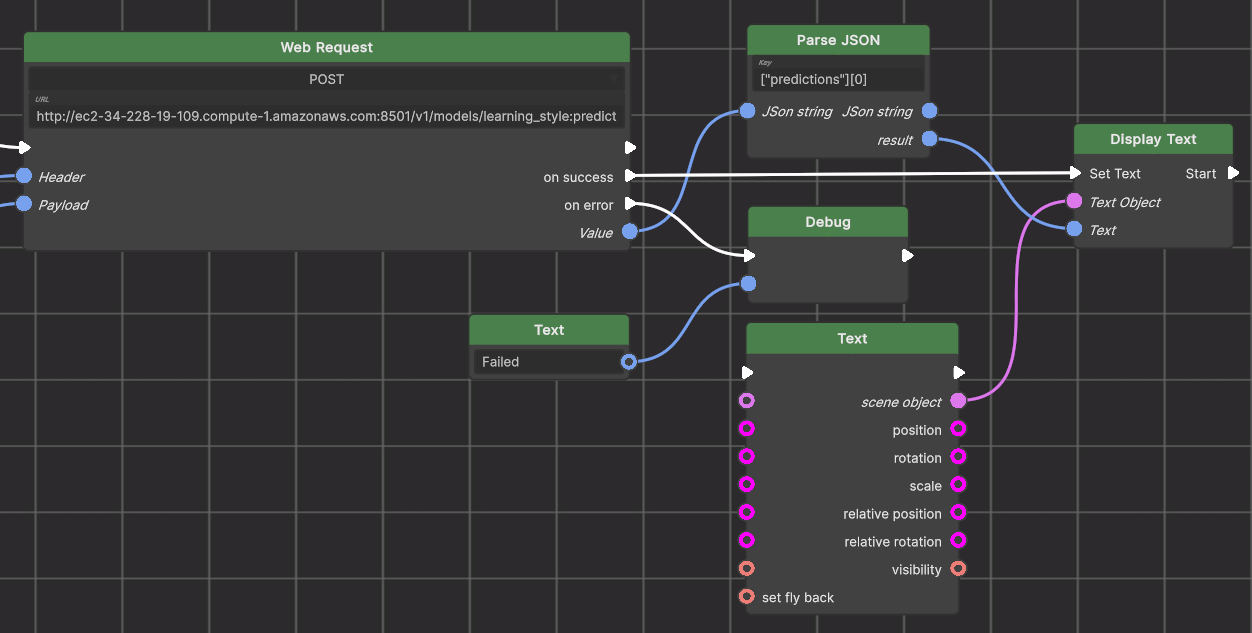
Thank you and have a nice day!
February 24, 2025 at 3:28 pm #819OK, what you need to do is this:

Notice that the predictions have a ‘.’ (period) in front and you can only select one value at a time.
However, the Merge Node currently does not support strings as inputs (only floats). This will be fixed in the next update. Sorry! But the next update (0.2.1) is not far away…
February 25, 2025 at 9:12 am #821Oh, I was close to getting the syntax right 🙂 Looking forward to the next update.
Thank you Robert.
February 25, 2025 at 9:15 am #822I see that what you are trying to do is very common. So I expanded the Parse JSON Node to make life easier for you.
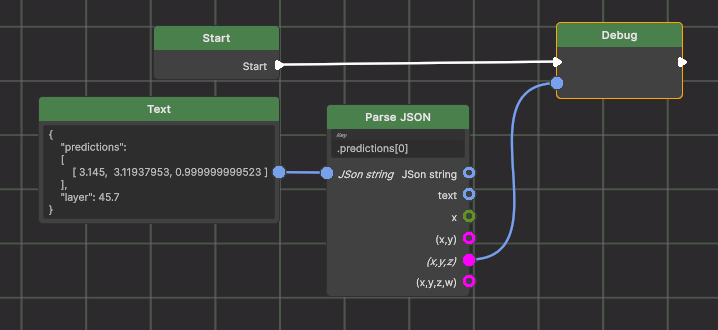
I suppose, this is more to your liking? 😉
The outputs return “”, 0.0, (0.0,0.0), etc. if the JSON is not structured in the expected way.
Next release…
February 25, 2025 at 11:37 am #828I don’t think it’s necessary to overload the Parse JSON node that much. We just need a way to get the values as strings and then convert them to numbers.
February 26, 2025 at 2:04 pm #836This will probably be the final version (0.2.1):

The “Result” output of the Parse JSON Value node can be any number of value types. The type is determined by the input type of the node it is connected to. By connecting the Result to a node with an (x,y,z) type of input, the Result is converted to this type and comes out as (1.43,0,1). If you were to directly connect the Result to the Debug node, the Result would produce a text
[
1.43343797,
3.11937953e-07,
0.999999523
]because the Debug input type is text. In this demo the Parse JSON nodes are connected to identity operations (+0 or *1) to force the Result to be of the required (x,y,z) type, but in practice you will probably connect the Result output to something that works with the correct type which you want to operate with and thus needs no forced conversion.
March 20, 2025 at 10:13 am #1360Hi Robert,
Unfortunately, we haven’t finished our discussion about the JSON parsing issues that we had. I didn’t want to take more time out of the meeting so maybe we can fix the problem here in the forums.
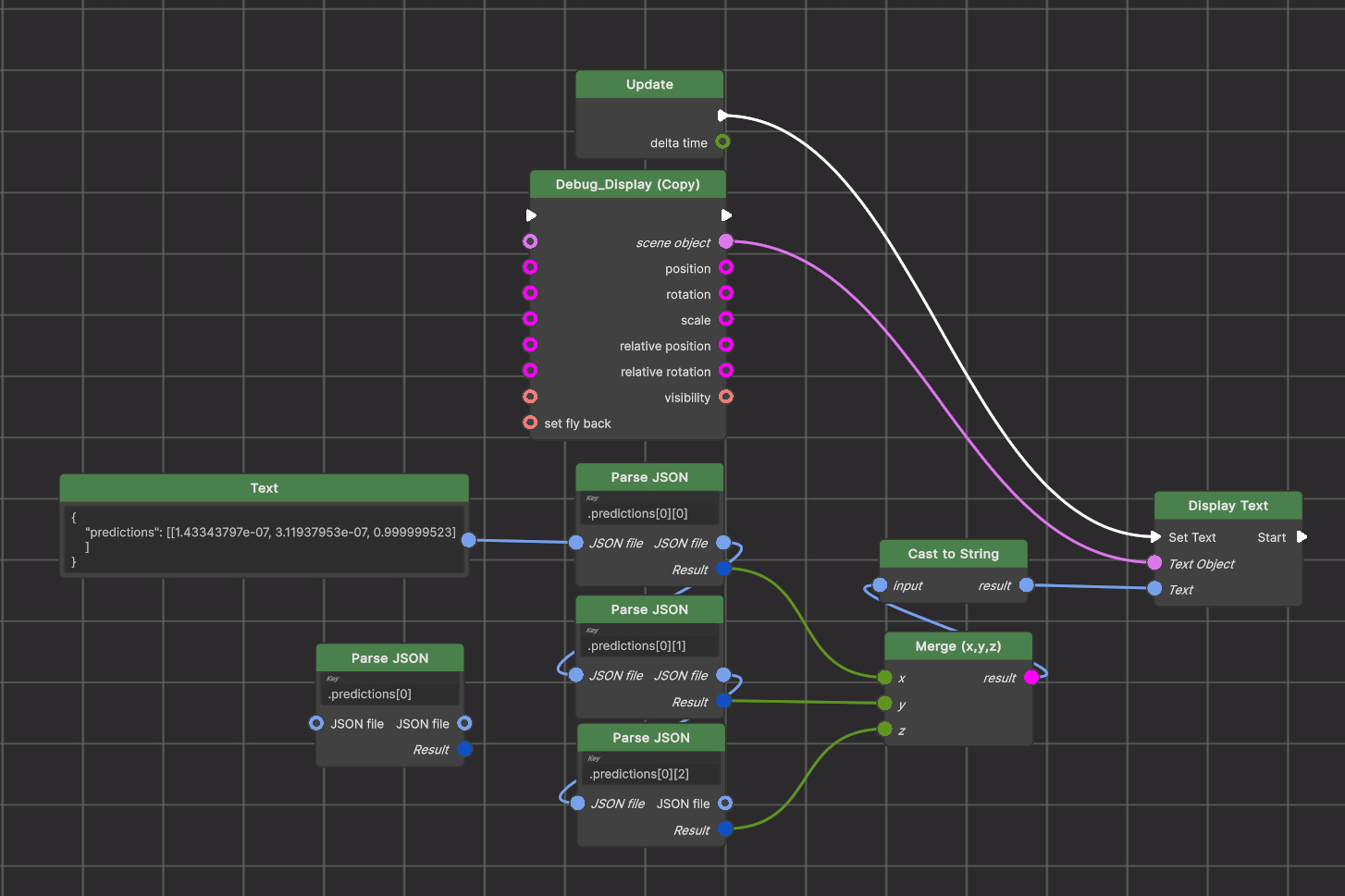
The results that I’m getting are [0, 0, 0] but this is not correct.
I’ve tried printing the results in the Debug as well, same results.
Do you have an idea why this is happening? Getting the correct results from JSON Parser is really important for our project.
March 20, 2025 at 11:34 am #1361As a matter of fact “.predictions[0][0]” really doesn’t work. However, you want to access the Vector3 anyway and that works. See below:
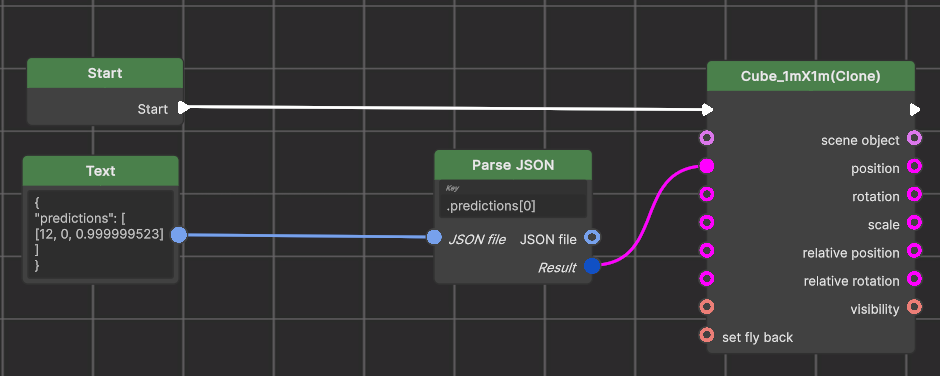
The output of the JSON file can be interpreted as anything, in this case as a Vector3. The cast is implicit because the input of the Cube is a Vector3. You can use an explicit CastVector3 node, but in most cases you won’t need that.
What also works is to have more than 1 vector:
.predictions[1]
.predictions[2]
…Hope this helps!
April 2, 2025 at 3:54 pm #1430Good news: adressing .entries[x][y] now works just fine.
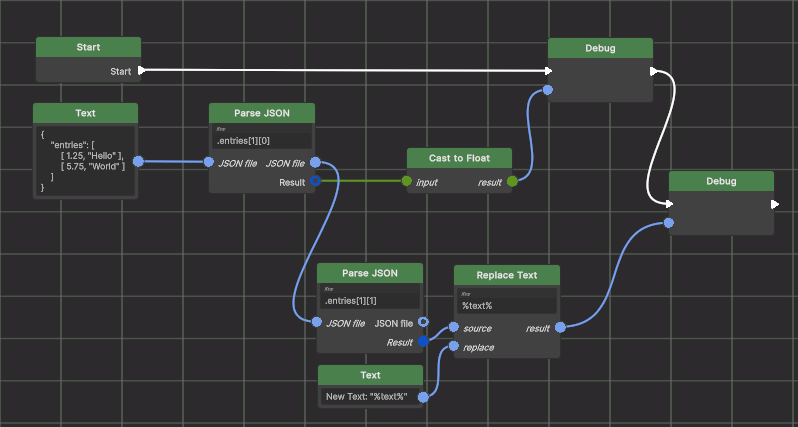
This example will debug print first “5.75” and then “New Text: World”. Wait for our next Release!
-
AuthorPosts
- You must be logged in to reply to this topic.

